Top 15 Best Weight Loss Apps in 2025: Features, Pros, and Cons
In today’s fast-paced digital world, finding the best weight loss app has become more personalized and accessible than ever before. Thanks to mobile technology, you can now access everything from calorie counters to fitness coaches and community support directly from your smartphone. But with so many options available, how do you choose the right app for weight loss that meets your specific needs?
Whether you want to track calories, build healthy habits, or follow structured fitness plans, this guide will walk you through the top weight loss apps in 2025—including their features, pros, cons, and who they are best suited for.

- 1. MyFitnessPal – Best for Food Tracking
- 2. Noom – Best for Habit Change
- 3. Zero – Best Fasting App
- 4. Lose It! – Best for Tracking Activity and Calories
- 5. WW (WeightWatchers) – Best Online Coaching
- 6. Lifesum – Best for Diet Plans
- 7. FitOn – Best for Fitness Plans
- 8. SparkAmerica – Best for Community Engagement
- 9. Simple – Best for Quick Weight Loss
- 10. Cronometer – Best for Precision Nutrition Tracking
- 11. Yazio – Best for Personalized Nutrition
- 12. 8fit – Best for Combined Fitness and Nutrition
- 13. BetterMe – Best for Beginners
- 14. Calorie Counter by FatSecret – Best Free Calorie Tracker
- 15. Healthi (formerly iTrackBites) – Best WW Alternative
- Are Apps For Weight Loss Effective?
- Interested in Developing a Custom Best Weight Loss App? Partner with AgileTech
- FAQs
1. MyFitnessPal – Best for Food Tracking

MyFitnessPal is one of the most popular choices for anyone seeking the best weight loss app, known for its comprehensive food database and straightforward calorie tracking. It is ideal for users who want to keep precise control over their daily calorie and macronutrient intake. The app also supports syncing with many fitness trackers to provide an all-in-one health snapshot.
Key Feature:
The barcode scanner and database of over 14 million foods enable users to log meals quickly and accurately, including custom meals and recipes.
Pros:
- Extensive, frequently updated food library
- Syncs seamlessly with fitness devices like Fitbit and Apple Health
- User-friendly interface with personalized nutrition goals
- Custom meal and recipe entry for flexible tracking
Cons:
- Free version contains ads which may interrupt user experience
- Premium subscription required for deeper analytics, nutrient details, and advanced tracking
- Occasional inaccuracies or missing items in the food database
2. Noom – Best for Habit Change
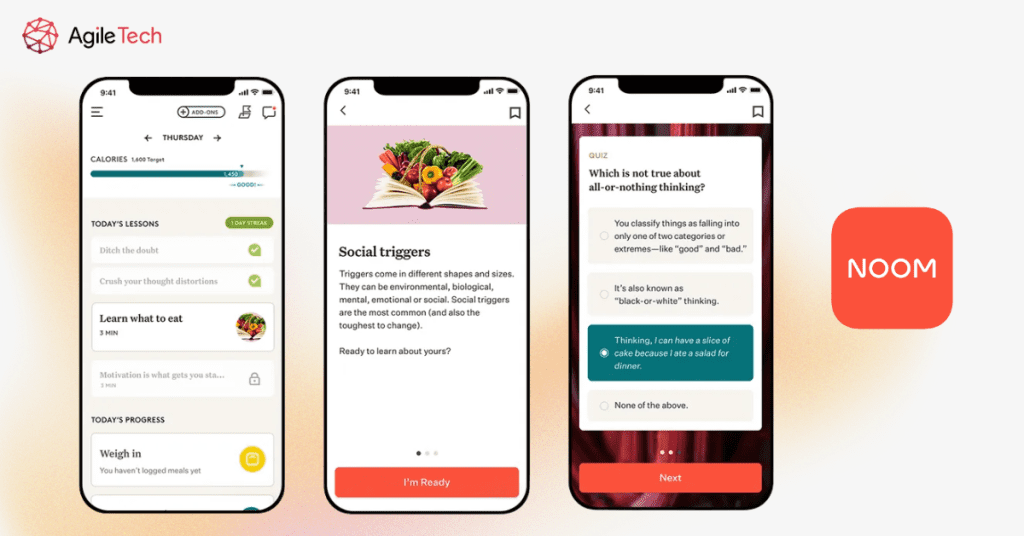
Noom differentiates itself by applying behavioral psychology to weight loss. It focuses less on calorie counting and more on developing lasting lifestyle habits through education and coaching. This makes it particularly effective for users looking to change their relationship with food and maintain results long-term.
Key Feature:
Behavioral coaching modules designed by psychologists guide users through cognitive and emotional strategies for sustainable change.
Pros:
- Comprehensive habit-building approach backed by scientific research
- Access to personal coaches for tailored guidance
- Progress tracking with intuitive visual reports
- Encouraging and motivational daily lessons
Cons:
- Higher subscription cost compared to many competitors
- Requires consistent daily engagement, which can be time-consuming
- Interface can feel busy or overwhelming to some users
Read more: Complete Development Roadmap to Build a Successful Fitness Tracker App
3. Zero – Best Fasting App
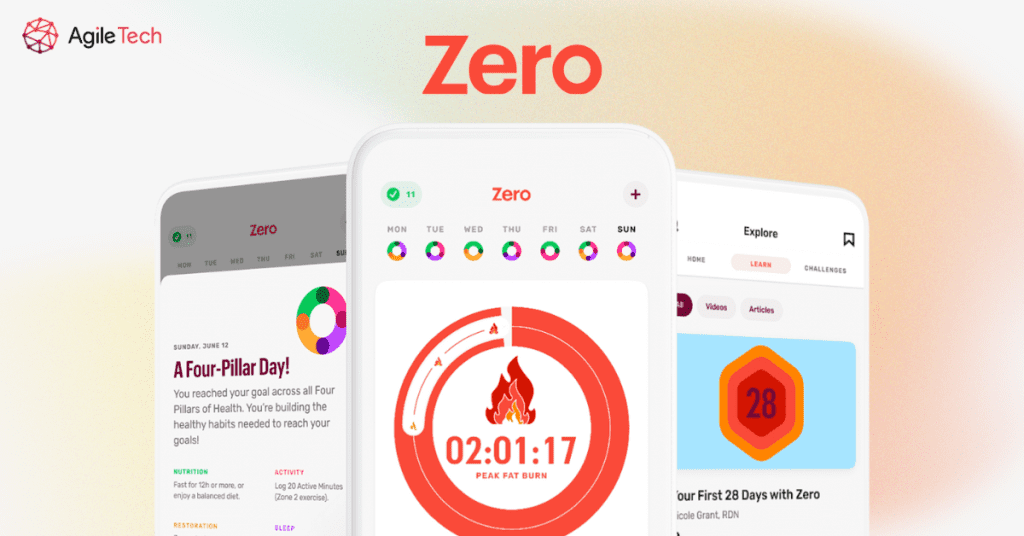
Zero is a dedicated fasting app that supports multiple intermittent fasting protocols, offering users customizable timers and detailed progress analytics. It also includes educational resources that help users understand the benefits and science behind fasting.
Key Feature:
Customizable fasting timers paired with in-depth fasting analytics and expert content.
Pros:
- Clean, minimalist user interface optimized for easy navigation
- Supports a wide range of fasting schedules (16:8, 5:2, etc.)
- Provides science-backed articles and fasting tips
- Suitable for users already familiar with fasting principles
Cons:
- Does not include food or calorie tracking features
- Limited meal planning or nutritional guidance
- Premium subscription required for full access to advanced analytics
4. Lose It! – Best for Tracking Activity and Calories

Lose It! offers a straightforward approach to calorie counting and activity tracking, making it ideal for users who want a simple yet effective tool to monitor energy balance. It integrates well with popular fitness devices to combine food and activity data.
Key Feature:
Smart calorie calculator with personalized daily goal setting based on individual metrics and weight loss targets.
Pros:
- Simple setup and easy to use interface
- Barcode scanning for fast food logging
- Syncs with Apple Health, Fitbit, and other wearables
- Detailed visual graphs to track progress over time
Cons:
- Food database is smaller than some competitors, which can limit options
- Free version displays ads
- Less flexibility in customizing macronutrient goals
Read more: Top 10 Best Fitness Apps for Android to Reach Your Health Goals
5. WW (WeightWatchers) – Best Online Coaching

WW blends a points-based nutrition system with personalized coaching and a vibrant community. Its approach is evidence-based and focuses on sustainable lifestyle changes, supported by live coaching sessions and group accountability.
Key Feature:
The SmartPoints system guides users toward healthier food choices by assigning point values based on nutritional content.
Pros:
- Well-structured, research-backed weight loss program
- Access to certified coaches for personal support
- Active, engaged member community providing peer motivation
- Custom meal and snack recommendations based on points
Cons:
- Monthly subscription fee can be a barrier for some users
- Points system may take time to fully understand and adapt to
- Some users find the system restrictive or complex initially
6. Lifesum – Best for Diet Plans
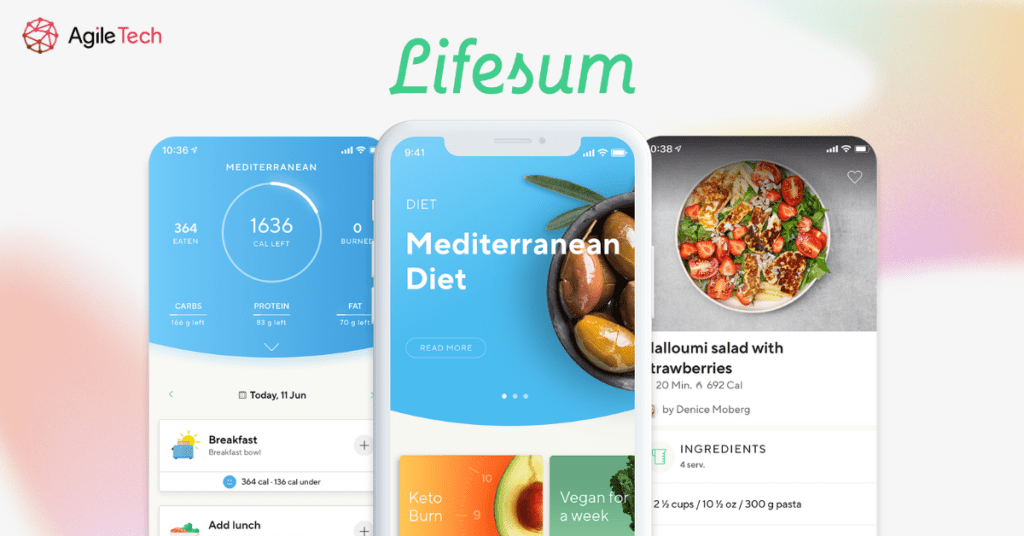
Lifesum caters to users following popular diet trends like keto, paleo, or Mediterranean by providing tailored meal plans and recipes. The app emphasizes a holistic approach by combining diet tracking with general wellness advice.
Key Feature:
Personalized diet templates that offer daily meal suggestions aligned with specific nutrition plans.
Pros:
- Visually appealing, intuitive design
- Supports a wide range of diet types with built-in meal planning
- Syncs with popular wearable devices to track activity and health metrics
- Recipe database helps simplify meal prep
Cons:
- Limited functionality in the free version
- Recipe options can vary by geographic location
- Social engagement features are minimal compared to other apps
7. FitOn – Best for Fitness Plans
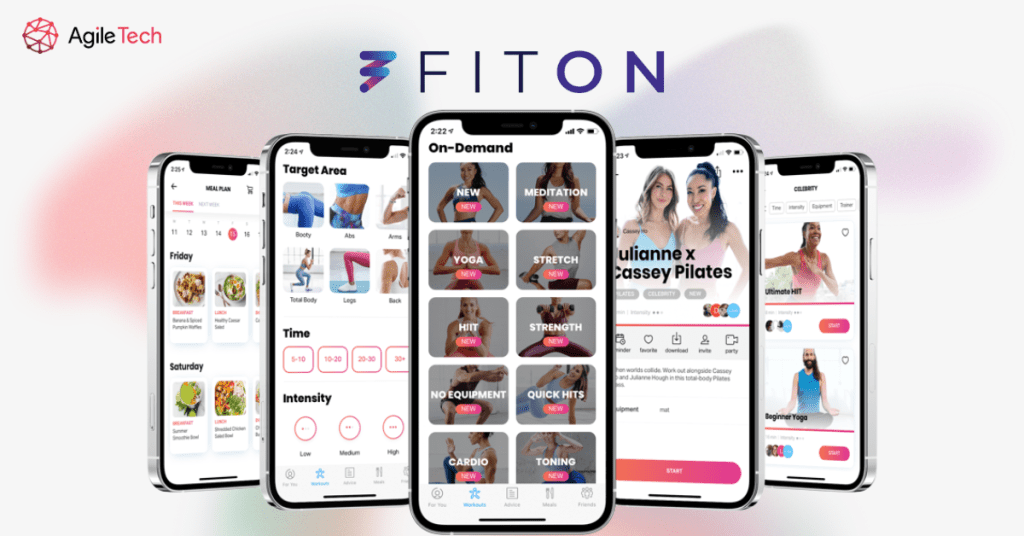
FitOn prioritizes exercise by offering a diverse library of workout videos led by celebrity trainers. It’s perfect for users who want free, high-quality at-home workouts without needing additional equipment or gym access.
Key Feature:
On-demand access to a variety of workout videos, including HIIT, yoga, strength training, and more.
Pros:
- Extensive free content with new workouts regularly added
- Celebrity trainers add credibility and motivation
- User-friendly with easy-to-follow routines for all fitness levels
- No cost for most core features
Cons:
- Lacks comprehensive nutrition or meal tracking tools
- Some advanced workouts and programs require a paid subscription
- No personalized coaching or progress tracking
8. SparkAmerica – Best for Community Engagement
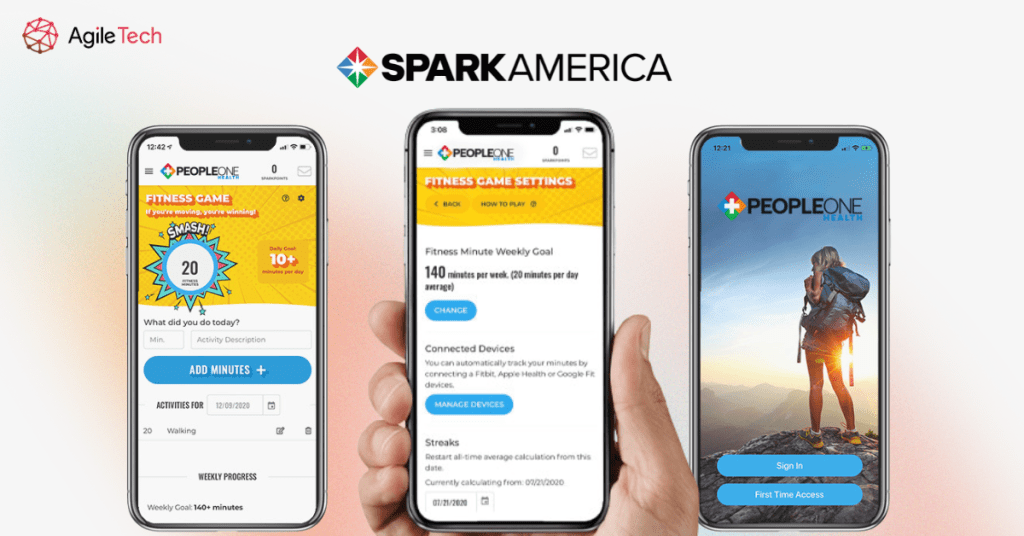
SparkAmerica focuses on group wellness challenges that foster teamwork and accountability. It is particularly effective for organizations, workplaces, or friend groups looking to motivate each other through gamified health activities.
Key Feature:
Nationwide wellness challenges designed to engage teams and promote healthy competition.
Pros:
- Gamified, social approach boosts motivation
- Free to use with community-based encouragement
- Suitable for corporate wellness programs and social groups
- Tracks group goals and achievements
Cons:
- Limited features for individual users
- App design feels outdated and less polished
- Less useful for personal, individual goal tracking
9. Simple – Best for Quick Weight Loss
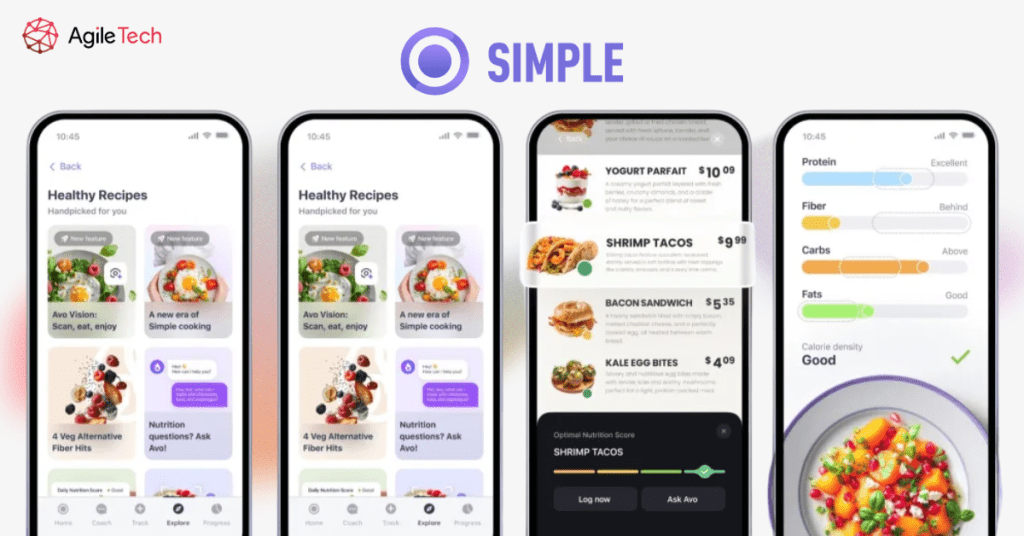
Simple is designed for users who want fast results and a clean, minimal app for weight loss that focuses on intermittent fasting. While it doesn’t provide meal logging, it pairs well with a free app tracking calories like MyFitnessPal or Cronometer for a complete weight loss solution.
Key Feature:
Straightforward fasting timer with beginner-friendly tips and progress visuals.
Pros:
- Easy setup and clean user interface
- Ideal for intermittent fasting novices
- Provides quick feedback on fasting progress
- Encourages consistent fasting habits
Cons:
- Limited nutrition or meal planning support
- Advanced analytics and insights require premium subscription
- Does not provide a comprehensive wellness plan
10. Cronometer – Best for Precision Nutrition Tracking
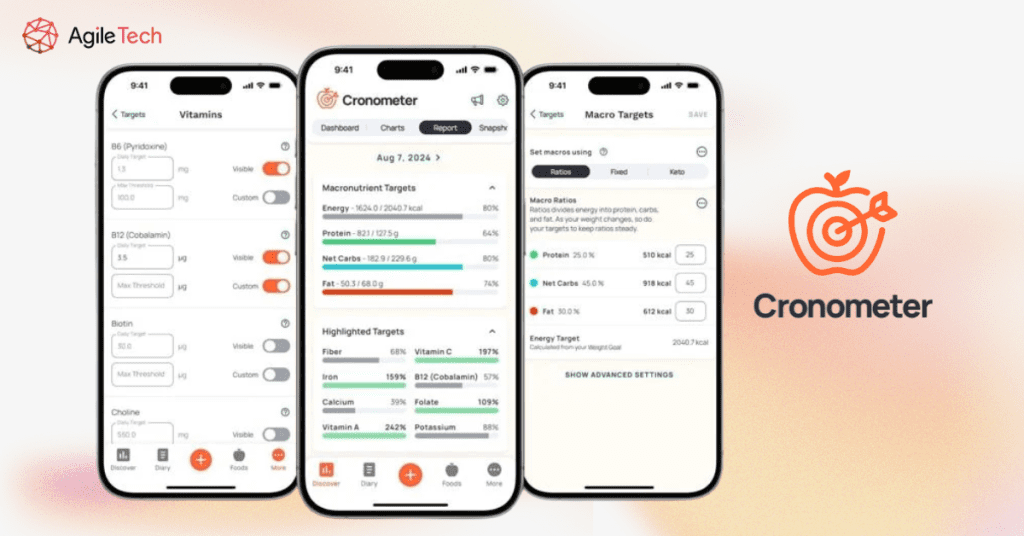
Cronometer is designed for users requiring detailed and accurate nutrient data. It tracks over 80 micronutrients, providing deep insight into diet quality, making it the preferred choice for nutrition professionals, athletes, and people managing specific health conditions.
Key Feature:
Comprehensive nutrient tracker that includes vitamins, minerals, macros, and biometrics.
Pros:
- Very accurate and clinically reliable nutrient data
- Ideal for specialized diets and detailed nutrition monitoring
- Supports biometrics and fasting tracking
- Integrates with fitness devices for comprehensive health monitoring
Cons:
- More complex and less intuitive than typical calorie counters
- Steep learning curve for new users
- Setup and logging can be time-consuming
Read more: Best Calories Tracker App for a Healthy Lifestyle in 2025
11. Yazio – Best for Personalized Nutrition
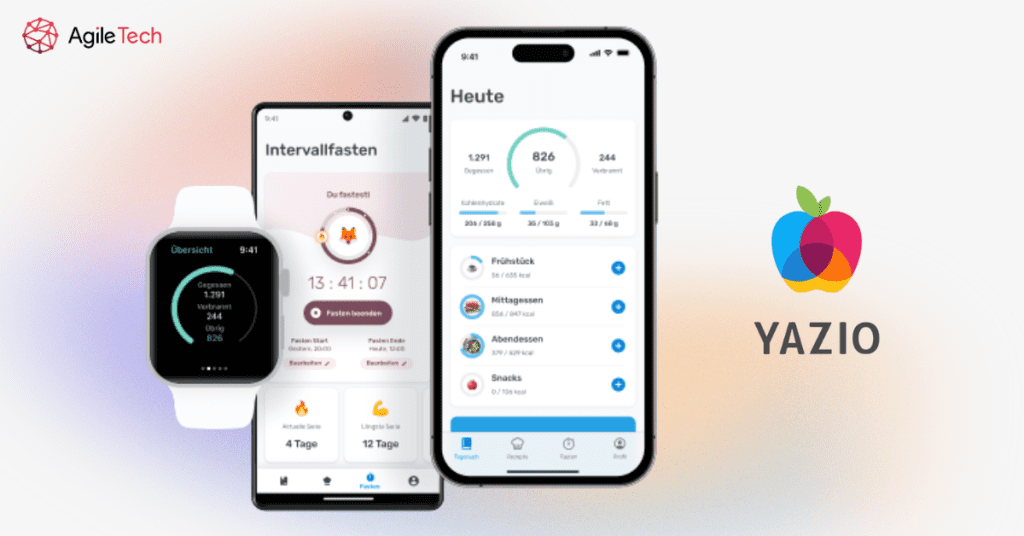
Yazio combines food tracking, personalized meal planning, and intermittent fasting support into a single platform. It offers flexible options for users who want structure but also some customization in their weight loss journey.
Key Feature:
Adjustable meal plans and a dynamic food journal adaptable to various diet styles and fasting schedules.
Pros:
- Combines calorie counting with fasting support
- Supports popular diets like vegetarian, keto, and high-protein
- Attractive and easy-to-navigate interface
- Syncs with wearables to monitor progress
Cons:
- Most useful features require a premium subscription
- Free version is limited in functionality
- Community features are minimal, reducing social motivation
12. 8fit – Best for Combined Fitness and Nutrition
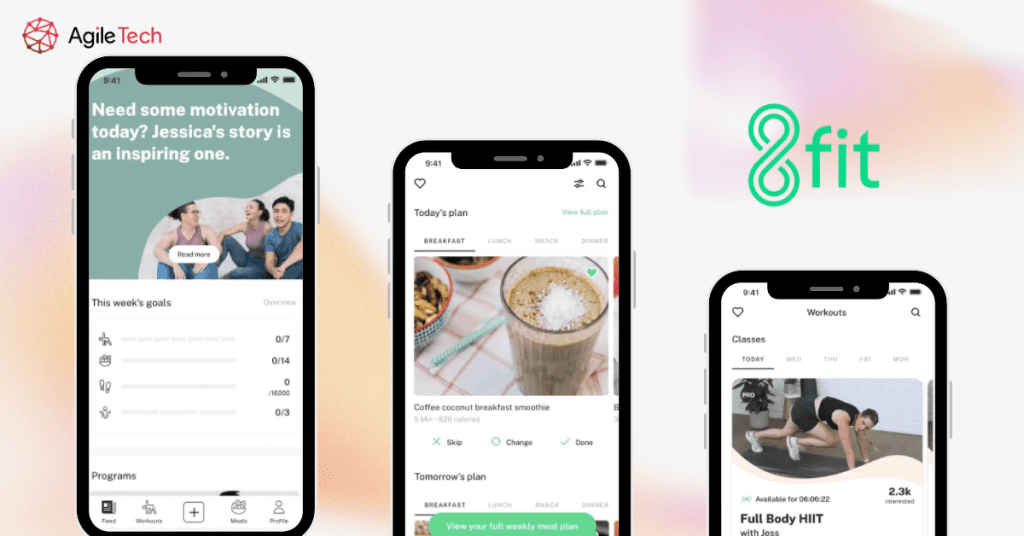
8fit provides integrated workout and nutrition plans designed to create a balanced lifestyle change. It guides users with personalized daily workout routines paired with meal suggestions tailored to fitness goals.
Key Feature:
All-in-one platform combining fitness programs and diet plans for holistic health improvement.
Pros:
- Personalized plans based on fitness level and goals
- Easy to follow daily routines with visual guidance
- Focuses on sustainable lifestyle changes rather than quick fixes
- Suitable for users seeking both fitness and nutrition support
Cons:
- Subscription required to access full features
- Meal plans can be somewhat inflexible for diverse tastes
- Workout library is less extensive compared to specialized fitness apps
13. BetterMe – Best for Beginners
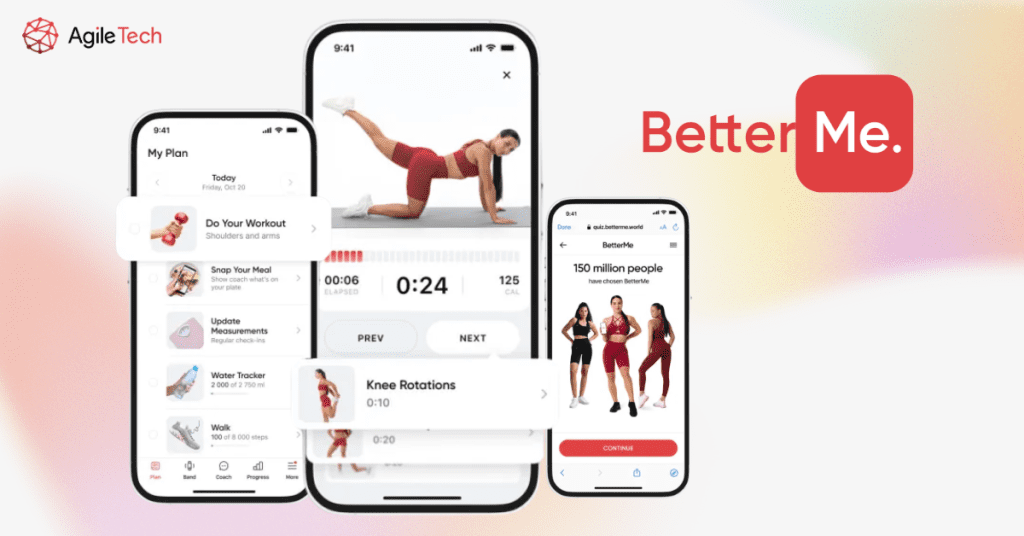
BetterMe offers a beginner-friendly entry into weight loss with guided plans that combine fitness, nutrition, and habit coaching. It uses motivational messaging to help users stay on track during their weight loss journey.
Key Feature:
Structured beginner plans combining workouts, meal tracking, and motivational support.
Pros:
- Easy-to-use interface designed for new users
- Engaging content with motivational nudges
- Multiple goal setting options for diverse user needs
- Covers fitness and diet fundamentals in one app
Cons:
- Heavy upselling to premium plans may frustrate users
- Some content can feel generic or repetitive over time
- Tracking and analytics features are limited compared to other apps
14. Calorie Counter by FatSecret – Best Free Calorie Tracker
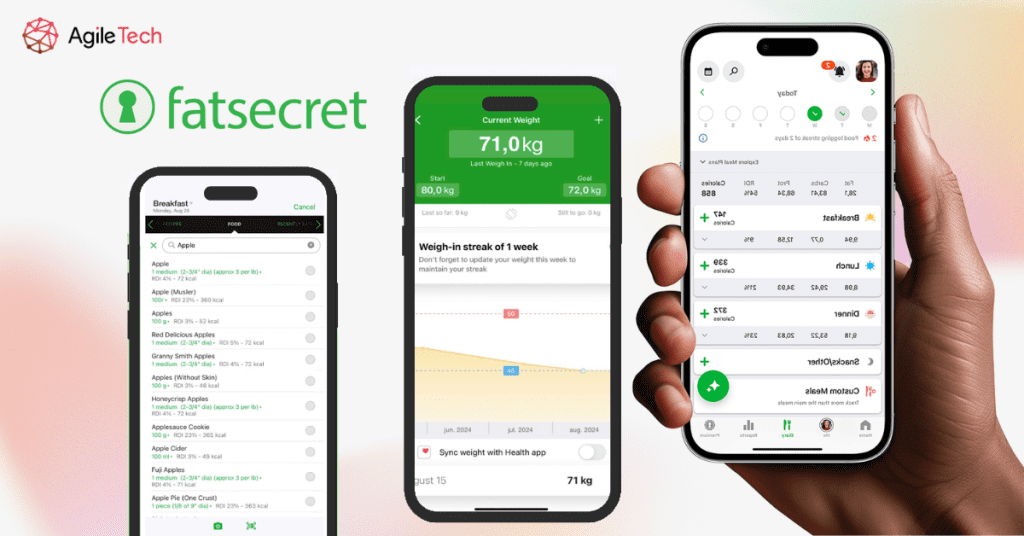
FatSecret is a straightforward calorie tracking app that offers essential features for free, making it ideal for budget-conscious users who want to manage their weight without extra costs.
Key Feature:
Basic food diary with barcode scanning, exercise log, and weight journal—all completely free.
Pros:
- No-cost access to core calorie tracking features
- Includes community support and forums
- Simple and effective logging tools
- Tracks exercise alongside diet
Cons:
- Interface design is outdated and less polished
- Food database is smaller, which may affect accuracy
- Manual entry can be time-consuming for complex meals
15. Healthi (formerly iTrackBites) – Best WW Alternative
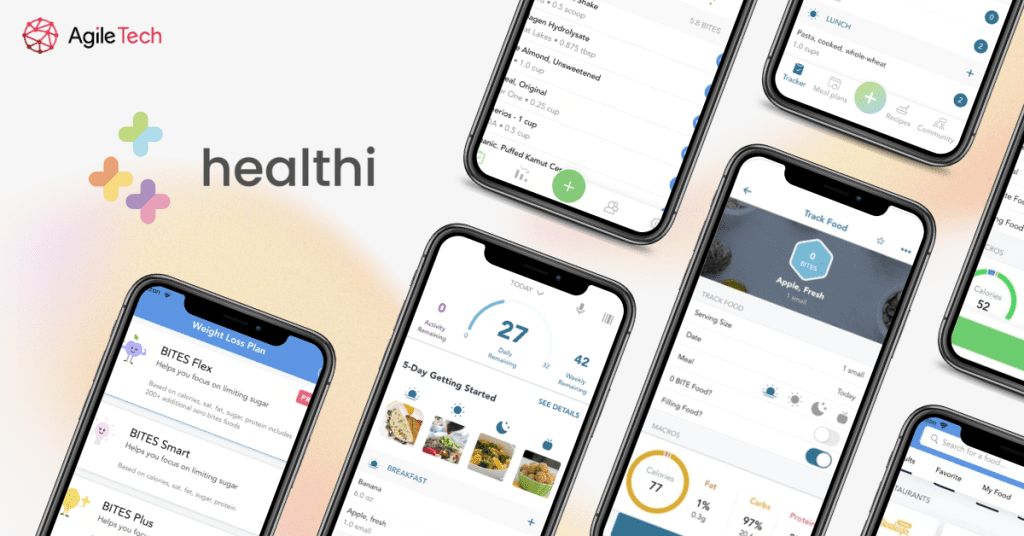
Healthi provides a cost-effective alternative to WeightWatchers with a similar points-based system and flexible meal logging. It appeals to users seeking a familiar but budget-friendly weight loss solution.
Key Feature:
Customizable bite or point system modeled after WW’s SmartPoints, supporting multiple diet templates.
Pros:
- Affordable alternative to popular paid programs
- User-friendly design with flexible diet options
- Syncs with wearable devices for activity tracking
- Supports various popular diet plans
Cons:
- Coaching and advanced features require additional payment
- Smaller community and less brand recognition compared to WW
- Social features are limited, reducing peer motivation
Are Apps For Weight Loss Effective?
Yes, app for weight loss have proven to be effective tools for many individuals striving to lose weight and improve their overall health. Multiple research studies consistently demonstrate that people who actively use apps to self-monitor their diet, exercise, and other health behaviors achieve better weight loss outcomes compared to those who do not track their progress. The key to their effectiveness lies in their ability to provide real-time feedback, promote accountability, and support behavior change through accessible technology.
The most successful weight loss apps integrate several critical components that work together to support sustainable results. These include:
- Calorie and nutrient tracking to increase users’ awareness of their eating habits and energy intake.
- Goal setting and progress monitoring to create personalized targets and celebrate milestones.
- Behavioral coaching and educational content to encourage healthy habits and provide evidence-based guidance.
- Community features and social support to foster motivation and accountability through peer encouragement.
When used consistently, these apps help users develop a stronger sense of control over their health choices. They encourage mindful eating, regular physical activity, and healthier lifestyle patterns. Additionally, the convenience of mobile apps allows users to log meals and workouts anytime, anywhere, making adherence easier.
Moreover, app for weight loss often leverage data from wearable devices, providing a more comprehensive picture of overall activity, sleep, and heart rate, which further informs personalized recommendations. This data-driven approach enhances motivation and helps identify areas for improvement.
However, the effectiveness of any weight loss app depends heavily on the user’s commitment and engagement. Sporadic use or passive tracking typically results in minimal benefits. Successful users tend to engage daily, set realistic goals, and take advantage of the app’s interactive features such as coaching messages or social challenges.
In summary, weight loss apps are valuable tools that, when integrated into a consistent health routine, can significantly enhance awareness, accountability, and motivation—key factors in achieving and maintaining weight loss.
Interested in Developing a Custom Best Weight Loss App? Partner with AgileTech
If you are planning to create a weight loss or health management app, partnering with an experienced technology provider is crucial to ensure your solution is effective, secure, and scalable.
AgileTech is a trusted software development company with a strong track record in healthcare and wellness applications. We combine deep industry knowledge with advanced technology to deliver tailored solutions that meet the highest standards for usability and data privacy.
Our expertise includes:
- Custom calorie and macronutrient tracking systems built to accommodate diverse dietary needs and user preferences, ensuring precise and user-friendly logging experiences.
- Seamless integration with wearable devices such as Apple Watch, Fitbit, and others, enabling real-time biometric data collection and enhanced user engagement.
- AI-driven personalized meal and workout recommendations powered by the latest machine learning models, designed to optimize results and adapt to individual progress and goals.
- Strict adherence to regulatory compliance including HIPAA (Health Insurance Portability and Accountability Act) and GDPR (General Data Protection Regulation), ensuring all user data is handled with the utmost security and confidentiality.
By collaborating with AgileTech, you gain a partner who understands the unique challenges of digital health products and can help you deliver a reliable, engaging, and compliant weight loss app that users can trust.